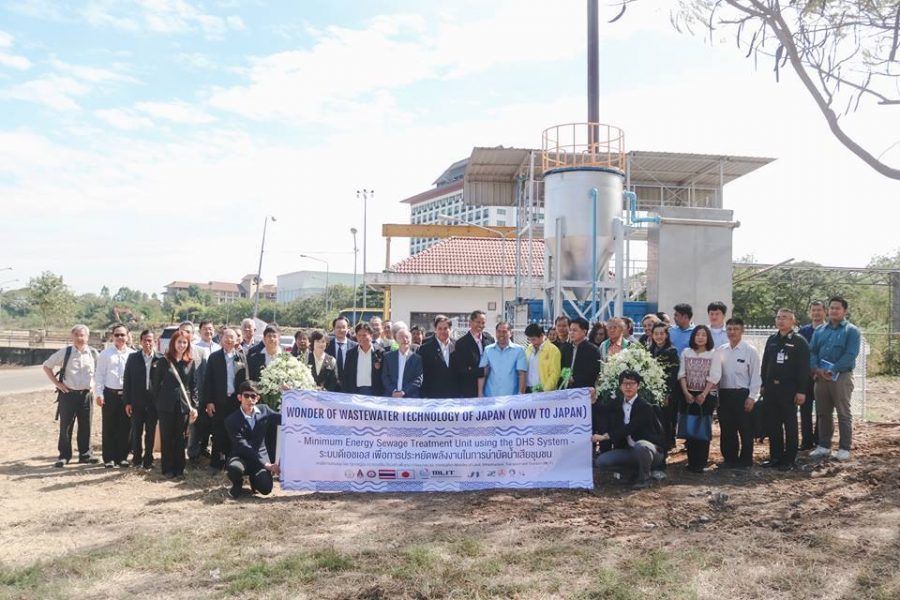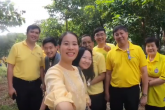Conventional municipal wastewater treatment systems typically require substantial electrical energy for aeration processes, which supply adequate oxygen to support microbial decomposition of organic pollutants. This energy dependency presents significant challenges for wastewater treatment implementation, particularly in developing countries with limited financial resources and inadequate infrastructure to sustain high operational energy costs.
To address this constraint, researchers at Nagaoka University of Technology, Japan, developed an innovative energy-efficient wastewater treatment system that eliminates the need for mechanical aeration. The system utilizes porous sponge material as a biofilm carrier medium, facilitating microbial attachment and growth. Through this configuration, wastewater undergoes effective treatment within a relatively short hydraulic retention time of several hours as it flows through the biofilm-laden sponge medium, achieving significant pollutant removal without external energy input for aeration.
This technological advancement represents a paradigm shift in wastewater treatment methodology, offering a sustainable and cost-effective alternative that eliminates dependency on energy-intensive aeration systems. The innovation, designated as the Down-flow Hanging Sponge (DHS) system, demonstrates considerable potential for widespread application in resource-constrained environments.
Associate Professor Dr. Pairaya Choeisai from the Environmental Engineering Department at Khon Kaen University led a collaborative research initiative to adapt the DHS system for Thai community wastewater treatment contexts. Beginning with feasibility studies and laboratory-scale testing in 2007, the research team, in partnership with Nagaoka University of Technology and Khon Kaen Municipality, developed and deployed the first pilot-scale sedimentation-DHS coupled system in 2011. Over a decade of systematic investigation demonstrated the system's remarkable efficiency, achieving effective treatment of municipal wastewater within 16 minutes and producing effluent with BOD concentrations as low as 2 mg/L—equivalent to pristine stream water quality—thereby establishing the DHS technology's viability for sustainable community wastewater management in Thailand.
A collaborative seminar between Khon Kaen Municipality's Natural Resources and Environment Division and Khon Kaen University's Environmental Engineering Department was conducted on December 13, 2018, to advance DHS technology implementation for energy-efficient community wastewater treatment. Supported by Japan's Ministry of Land, Infrastructure, Transport and Tourism under the "Wonder of Wastewater Technology Of Japan (WOW TO JAPAN)" initiative, the seminar facilitated knowledge transfer between Thai and Japanese research institutions, including NJS Consultants, Sanki Engineering, Tohoku University, and Nagaoka University of Technology. The program featured keynote presentations by Professor Dr. Hideki Harada (Tohoku University), the pioneer of DHS system research, and Assistant Professor Dr. Pairaya Choeisai (Khon Kaen University), who developed the integrated sedimentation-DHS approach for Thai community wastewater applications, alongside municipal management perspectives from Khon Kaen Municipality representatives, with Associate Professor Dr. Kanda Saikaew presiding as session chair.
Mr. Yoshihiro Kirishima, Project Manager of the Wonder of Wastewater Technology of Japan (WOW TO JAPAN) from NJS Consultants Co., Ltd., outlined the project's objectives to facilitate bilateral technology transfer and collaborative learning between Thailand and Japan through knowledge sharing and professional networking. The seminar included a site visit to Thailand's first community-scale sedimentation-DHS treatment system at Bueng Thung Sang Pumping Station, featuring both pilot-scale and full-scale installations serving populations of 400-1,600 residents, with the full-scale system commencing operations in November 2018. This implementation represents the culmination of a sustained research collaboration between Khon Kaen University, Nagaoka University of Technology, and Khon Kaen Municipality that has operated the pilot-scale system continuously since 2011, demonstrating the successful translation of research outcomes into practical wastewater treatment solutions for Thai communities.
The project launch was officially inaugurated through a ribbon-cutting ceremony attended by key provincial officials including Mr. Siriphan Srikongplee (Provincial Governor of Khon Kaen), Mr. Virunpop Suphap (Director of Regional Environmental Office 10), and Mr. Pichit Sombatmak (Director of the Office of Natural Resources and Environment, Khon Kaen Province) at the full-scale DHS system installation. The WOW TO JAPAN project will continue monitoring and data collection from the operational full-scale sedimentation-DHS system for community wastewater treatment in Khon Kaen Municipality, with research dissemination planned through a seminar for local government organizations and stakeholders scheduled for late February to March 2019 (registration available through Associate Professor Dr. Pairaya Choeisai at pairaya@kku.ac.th during February 1-15, 2019).
In this article
EN KKU News


